E-cadherin is required for metastasis in multiple models of breast cancer
- PMID: 31485072
- PMCID: PMC7365572
- DOI: 10.1038/s41586-019-1526-3
E-cadherin is required for metastasis in multiple models of breast cancer
Abstract
Metastasis is the major driver of death in patients with cancer. Invasion of surrounding tissues and metastasis have been proposed to initiate following loss of the intercellular adhesion protein, E-cadherin1,2, on the basis of inverse correlations between in vitro migration and E-cadherin levels3. However, this hypothesis is inconsistent with the observation that most breast cancers are invasive ductal carcinomas and express E-cadherin in primary tumours and metastases4. To resolve this discrepancy, we tested the genetic requirement for E-cadherin in metastasis using mouse and human models of both luminal and basal invasive ductal carcinomas. Here we show that E-cadherin promotes metastasis in diverse models of invasive ductal carcinomas. While loss of E-cadherin increased invasion, it also reduced cancer cell proliferation and survival, circulating tumour cell number, seeding of cancer cells in distant organs and metastasis outgrowth. Transcriptionally, loss of E-cadherin was associated with upregulation of genes involved in transforming growth factor-β (TGFβ), reactive oxygen species and apoptosis signalling pathways. At the cellular level, disseminating E-cadherin-negative cells exhibited nuclear enrichment of SMAD2/3, oxidative stress and increased apoptosis. Colony formation of E-cadherin-negative cells was rescued by inhibition of TGFβ-receptor signalling, reactive oxygen accumulation or apoptosis. Our results reveal that E-cadherin acts as a survival factor in invasive ductal carcinomas during the detachment, systemic dissemination and seeding phases of metastasis by limiting reactive oxygen-mediated apoptosis. Identifying molecular strategies to inhibit E-cadherin-mediated survival in metastatic breast cancer cells may have potential as a therapeutic approach for breast cancer.
Conflict of interest statement
The authors declare competing financial interests: details are available in the online version of the paper.
Figures
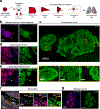

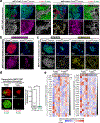
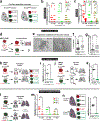
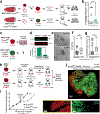
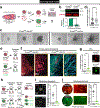
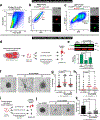
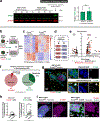
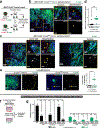
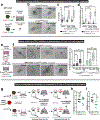



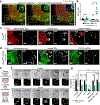
Comment in
-
Survival skills ensure that cancer spreads.Nature. 2019 Sep;573(7774):353-354. doi: 10.1038/d41586-019-02570-z. Nature. 2019. PMID: 31530905 No abstract available.
-
Cancer: Context Is Key for E-cadherin in Invasion and Metastasis.Curr Biol. 2019 Nov 4;29(21):R1140-R1142. doi: 10.1016/j.cub.2019.09.054. Curr Biol. 2019. PMID: 31689402
-
Role Reversal: A Pro-metastatic Function of E-Cadherin.Dev Cell. 2019 Nov 18;51(4):417-419. doi: 10.1016/j.devcel.2019.10.028. Dev Cell. 2019. PMID: 31743661
References
REFERENCES (METHODS):
MeSH terms
Substances
Grants and funding
LinkOut - more resources
Full Text Sources
Other Literature Sources
Medical
Molecular Biology Databases
Miscellaneous

